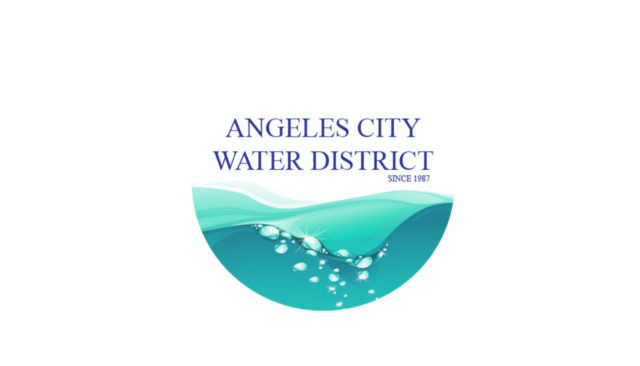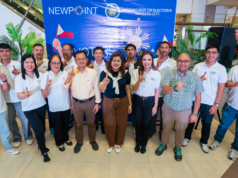ANGELES CITY – The Local Water Utilities Administration (LWUA) has rebuked the Angeles City Water District (ACWD) on the use of ultra violet (UV) disinfection in treating its water sources in an assessment report on February 10.
The report, signed by acting LWUA administrator Jeci A. Lapuz, bolstered the findings of the city council that the ACWD has entered into anomalous contracts that were disadvantageous to the government.
Based on the LWUA report, the water sources from deep wells have different water qualities that require correction in order to comply with the 2017 Philippine National Standards for drinking water.
The report said “UV disinfection is not really the ultimate solution to bacterial eradication…” and “chlorination is still needed to maintain the required chlorine residual.”
“A substantial savings of P28,115,821 per year could have been achieved if chlorine was used as the disinfectant,” the report pointed out.
It said the ACWD shifted from chlorinization to the use of UV disinfection to get rid of microbiological contaminants and comply with the drinking standards.
Unfortunately, the microbial quality after the UV treatment was not completely addressed as laboratory results showed the reported significant levels of hepe rotropic plate count, a key indicator to bacterial regrowth.
The LWUA report said the intended use of UV as a disinfectant is negated because of the presence of mineral contents that impedes the radiation that were not adequately removed prior to the UV radiation exposure. Thus, Bauer international was contracted to supply the pre-treatment facilities needed for those water sources with high mineral contents.
It was also noted in the report that the ACWD has initially contracted Texin to supply and install Ultra Violet Hydro Optic Disinfection (UV HOD) to water sources to ACWDs Central Pumping Station in Sto. Domingo at a cost of P29,949,326.
However, the ACWD later opted to outsource the UV-HOD for other 20 water sources with Texin Inc. at a cost of P3 per cubic meter of treated water for a period of 25 years with roughly 4.21-year payback period.
LWUA said this cost the ACWD P32,287,932 per year for the UV treatment plus the added P4,172,110 per year for chlorine. A substantial savings of P28,115,821 per year could have been achieved if chlorine was used as the disinfectant.
Thus, the failure of the ACWD to make a thorough engineering study and post project evaluation on the beneficial use of UV disinfectant had cost the government more.
With the absence of sufficient data particularly the laboratory results that show the efficiency of UV disinfection, which is supposed to be the basis for procuring the UV-HOD, is not well understood, the report said.
“Thus, the absence of vital engineering study and with the P3 charge per cubic meter is baseless.”
The LWUA report said it is “unwise on the part of the ACWD to contract for 25 years which is too long when in fact the payback period is only around 4 years while the technology transfer should have been completed by then without further outsourcing the maintenance of these UV HOD.”
It may be interred that the introduction of UV disinfection for water disinfection alone did not improve the water quality and more importantly it ate up additional operations and maintenance cost.
Therefore, UV disinfection was not really the ultimate solution to bacterial eradication and chlorination is still needed to maintain the required chlorine residual, the report said.
Copies of the report were furnished to Mayor Carmelo “Pogi” G. Lazatin Jr., Vice Mayor Vicky Vega-Cabigting, ACWD general manager Engr. Reynaldo Liwanag, chairman Michael Aguinaldo of the Commission on Audit, Ombudsman Samuel Martires, and Commissioner Greco Belgica of the Presidential Anti-Corruption Commission (PACC).





